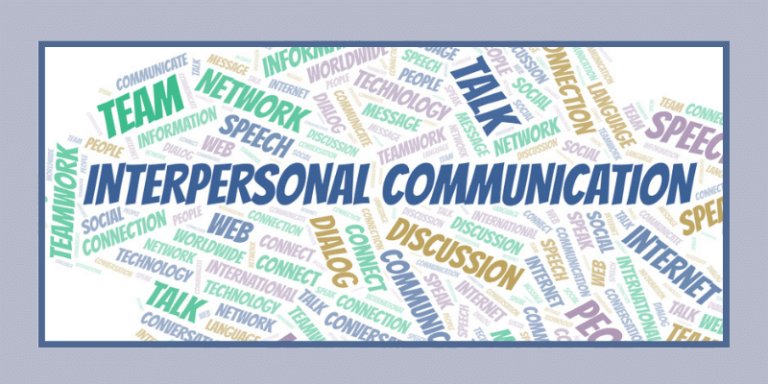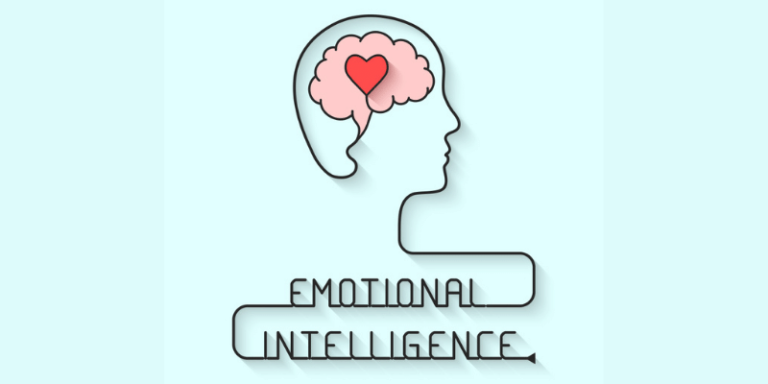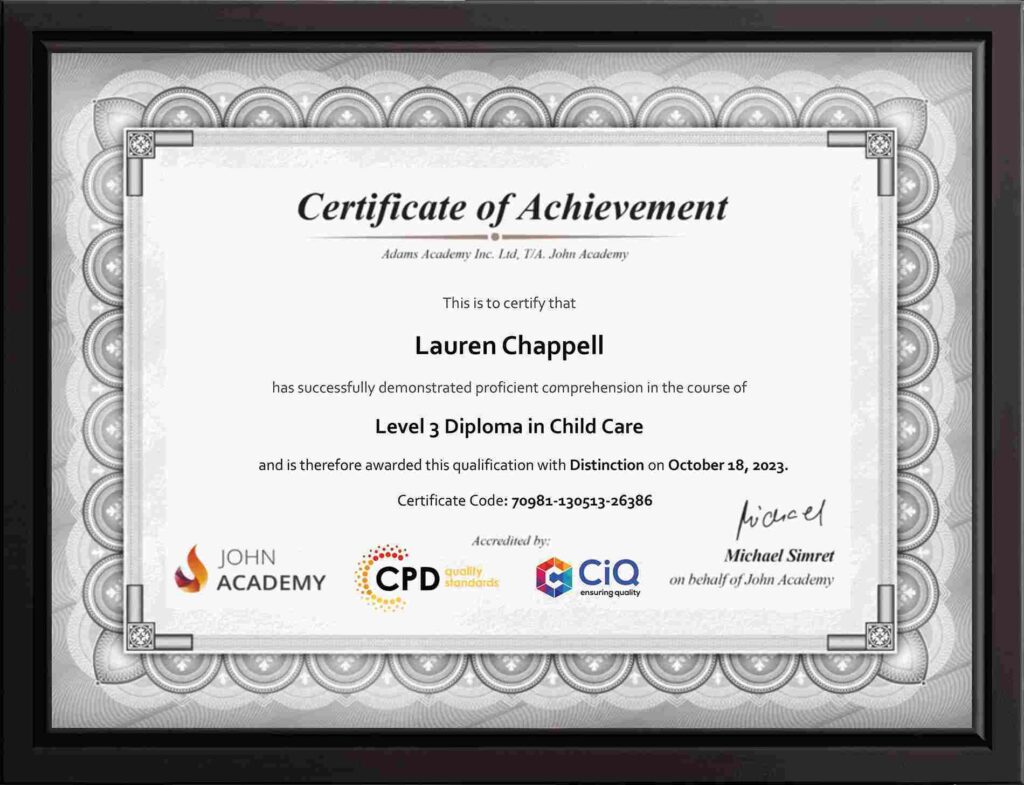

Do you that more than 60% of employers report that applicants do not show the interpersonal skills needed to be considered for their job?
Interpersonal skills are soft skills required for communicating and interacting with others to navigate social situations. These are very important in our daily life, and even more so in the workplace, for a positive and effective work environment.
Good news is that you can improve interpersonal skills with practice, effort, and time. And if you already have good interpersonal skills, it wouldn’t hurt to take it to the next level.
Table of Contents
What are Interpersonal Skills?
Interpersonal skills are also known as social skills, people skills, soft skills, or life skills. But what do interpersonal skills mean? Interpersonal skills are the skills required to communicate and interact with individuals and groups effectively. Those with good interpersonal skills are considered to be “good with people”.
And what do interpersonal skills mean in business? In business, the term interpersonal skills refer to an employee’s ability to work well with others in the workplace.
Interpersonal skills aren’t just a single skill. Instead, it consists of numerous soft skills required to navigate daily relationships. These interpersonal skills can range from communication and listening to attitude and their conduct in general.
Soft skills or interpersonal skills are most common among workers in the restaurant, retail, and human resources industries. It is indispensable for most roles, especially for roles that aren’t too technical in nature.
Why are Interpersonal Skills Important?
Interpersonal skills are so crucial in any field. Experts believe that people with strong interpersonal skills tend to be more successful. This should come as no surprise because people who communicate well with family, friends, colleagues, clients, and customers tend to do better in both personal and professional life.

So, having strong interpersonal skills is an asset. This can help you navigate the daily complexities, changes, or regular day-to-day tasks in the workplace.
On the other hand, a lack of interpersonal skills or having poor interpersonal skills can lead to a world of trouble. It would be harder to build good customer relationships and understand customer needs. Also, there would be more conflict, miscommunication, lack of mutual trust, and unhealthy professional relationships in the workplace.
Therefore, it is very important to have strong interpersonal skills to get the job you want, flourish in the workplace and maintain healthy relationships.
10 Interpersonal Skills That Employers Value
Interpersonal skills are skills that one needs to interact, communicate, and work with other individuals or groups effectively. A person’s personal and professional relationships thrive with strong interpersonal skills. Hence, employers and recruiters want to ensure that they select the perfect candidate with decent to strong interpersonal skills.
Here is a list of the most sought-after interpersonal skills that are highly valued by employers and recruiters:
1. Interpersonal Communication
2. Leadership Skills
3. Team Work
4. Conflict Resolution
5. Emotional Intelligence
6. Active Listening
7. Showing Respect To Others
8. Patience
9. Workplace Etiquette
10. Positive Attitude
1. Interpersonal Communication
For career progression, communication skills such as speaking, listening, and writing with clarity and conciseness are essential for most job roles. In fact, verbal communication skills are ranked number one among job candidates ‘must have’ skills and qualities.
Communication can be verbal, non-verbal, or in written form. To be an effective communicator, you have to master all of them. However, communication barriers can create distortions, waste time and money by causing confusion and misunderstanding. Also, interpersonal communication can be ineffective due to the use of complicated jargon, inappropriate body language, inattention or disinterest, and cultural differences.

Effective communication requires overcoming these barriers and transmitting a clear, concise and complete message. So, to improve overall communication skills, you need to be aware of and attempt to minimise any communication barriers and develop emotional intelligence.
You can take this Public Speaking and Effective Communication Masterclass to improve your interpersonal communication in no time. It will help address all your issues and develop your verbal communication, public speaking and listening skills. And as a bonus, you’ll get exclusive tips on how to ace your job interview through improved communication skills. So what are you waiting for? Enrol today!
2. Leadership Skills
Leadership skills are one of the most sought after skills by employers. Leadership skills involve motivating, encouraging and directing people to reach goals. In other words, it’s the ability to inspire and engage others to do their best work towards a shared goal.

Also, interpersonal skills are among the most important traits for effective leadership. Employers and recruiters value people capable of taking control to reach common goals in any role.
Good leadership skills increase efficiency and productivity, reduce employee turnover and help maintain good relationships. It also makes other co-workers feel safe, heard, and understood. Developing these skills will also help you improve your work processes and results.
You can get a Leadership Diploma to develop your skills. This will help you showcase your skills and help you get ahead in your career.
3. Team Work
Most jobs are not isolated and require considerable interaction with individuals and groups. And teamwork skills allow you to work well with others during projects, meetings or other collaborations. Having teamwork skills depends on your ability to communicate well, actively listen, be responsible and honest and have a strong work ethic.

In fact, working together as a team is extremely valuable in every workplace. Teamwork and collaboration within a group can help solve complex problems quickly. Besides, brainstorming is an excellent opportunity for the team to exchange ideas and develop creative ways.
All in all, it’s a soft skill that employers take very seriously. So, if you want to get a job and keep it, you need to learn how to work in a team effectively. Moreover, good “team players” are often given important tasks in the workplace and are considered good candidates for promotions.
4. Conflict Resolution
Conflict, or interpersonal conflict, is common in life. It usually emerges more frequently when people are stressed, or face disagreements due to personal, financial, political or emotional issues. That’s where conflict resolution comes in. It’s a way for two or more parties to find an amicable solution to a disagreement among them. And employee mediation is a confidential, informal and voluntary process where a neutral party helps to resolve a conflict.

Being able to work with others to resolve interpersonal conflict and disagreements in a positive way is a great interpersonal skill. It can help a business run smoothly, make employees more productive and spread positivity in the workplace.
Some noteworthy conflict management styles are collaborating, assertiveness, negotiation, accommodating, and compromising. It is important to remember that well-managed conflict can be constructive. It can help ‘clear the air’, release emotion and stress, and resolve tension in the workplace.
5. Emotional Intelligence
If you talk about a superpower among the interpersonal skills, this could be it. It is one of the most in-demand skills that highlight the importance of how employees interact with each other. Additionally, high emotional intelligence is directly related to high performance.

Emotional intelligence (EI) is the ability to perceive, recognise, evaluate, and manage one’s own and others’ emotions. And empathy is the innate ability to understand how others feel. Empathy will help you develop strong bonding and relationships with other people quickly. Plus, who doesn’t appreciate someone with more empathy?
The best way to develop emotional intelligence is by placing yourself in other people’s shoes. In that way, you will know how it feels to be in that situation. You will know what you expect to hear from someone, you will know how you want to be treated, and many more. It is another difficult skill to acquire, but the time and effort are worth the outcome.
6. Active Listening
Listening is something we all do all the time. But, even though we do it a lot, it is something that many people are bad at. Now you might wonder, how can someone be bad at listening?
The answer to this question depends on how you define listening. There is active listening on one side and hearing on the other. Hearing is involuntary, and listening is when you concentrate and hear something.

Active listening makes people feel heard and valued. Active listening mandates you to listen attentively to the speaker, understand, respond, reflect on what they are saying and retain the information for later. Listening is also part of communication. Active listening keeps both the listener and speaker actively engaged in the conversation.
While talking to someone, stay fully engaged and focus on the person speaking to you. Make eye contact and answer or ask questions if you have any.
7. Showing Respect To Others
Respect is something that you need to give others; only then will they respect you back. Being polite in every situation possible is perhaps the best way to show respect.
You can also show respect by being kind, thankful, affirming, and helping people in whatever way they need.
Showing respect will get you a lot more than respect. People will tend to be more friendly, loving, caring, kind, and helpful to you. All in all, respect will get you only friends and no enemies.
8. Patience
One of the best interpersonal skills to have is patience. It is also a very rare quality, and not many possess it. Patience can be eye-opening in many ways.
For success, we need patience, as success doesn’t come overnight; it can take years and years. And we are sure we all remember Aristotle’s quote on patience, “Patience is bitter, but its fruit is sweet.”
This incredible quality also has many other advantages, such as:
- Help you focus on your long-term goals
- Look at the bigger picture
- Make people love you
- Have a healthy mind
- Stay down to earth
- Bring inner peace
- Possess a positive attitude
- Be more empathetic
The list goes on and on and on, but you get the gist. The ideal way of having more patience is thinking about the good in everything and waiting for more good to happen. Additionally, it will also help if you take your time with everything, and not rush.
9. Workplace Etiquette
How you come across while interacting with others can speak volumes. Also, having excellent workplace etiquette can help you leave a lasting impression on people you meet. It will impact your ability to get a job, promotion and help you grow your professional network.

So, always check your posture, stand straight, make eye contact, turn towards people when speaking, and smile genuinely at them. Additionally, you should always follow the company’s dress code and ensure that your accessories, such as ties, purses, or jewellery, are suitable for the workplace.
And you should always try to be kind and courteous towards people around you. It’s also a good practice to be punctual – arrive at a good time every morning, meet deadlines, join meetings in time etc. Lastly, always try not to be unprofessional and refrain from doing anything that might disturb other people.
10. Positive Attitude
A positive attitude is a mental outlook of optimism. Having a positive attitude means you are optimistic about your surroundings, interactions, and have the ability to look adversity in the eye without flinching. People with positive attitudes remain hopeful and try to make the most out of any difficult situations instead of breaking down.
People with a positive attitude are supposedly easier to get along with. And employers want to hire employees who make the office a brighter place while having a can-do attitude. Of course, this doesn’t mean you have to be the most social person in the office with a constant smile in your voice. But you must be willing to develop a positive rapport with your colleagues.
How to Improve Your Interpersonal Skills?
Improving your interpersonal skills will take both time and effort, so you have to stay patient. Well, patience is also another interpersonal skill. Here’s what you can do to improve your interpersonal skills and use them to get ahead in your career.
- 1. Assess your interpersonal skills and abilities
- 2. Develop a plan to improve your interpersonal skills
- 3. Highlight your skills to help you get the job you want and advance your career

Also, you can tell your closest people to give you feedback every now or then. How can you track your progress? You’ll know if you’re improving because if you do improve, you will feel that people genuinely like your behaviour and respond well to you.
Identify What You Have & What You Don’t
Identifying whether you are good at something or not is sometimes difficult. It is because you have to be your judge and stay unbiased. However, in the case of interpersonal skills, it isn’t that complicated. So let’s start with how you are going to realise whether you have good interpersonal skills or not.
You can start by counting how many people you know and how many you are friends with. After that, understand what your relationship status is with all of them. Then, how do you get along with them compared to how you would like to get along.
Among the interpersonal skills that we mentioned, check with yourself and find out which skill you excel at and which you don’t. Once you have the list of interpersonal skills, you want to improve at, start with the easiest one and work your way up.
Tips to Improve Your Interpersonal Skills
Interpersonal skills are critical for career advancement in any sector. From networking to demonstrating strong skills to getting your desired promotion, interpersonal skills are crucial in every aspect.
Here are a few tips for developing and improving your interpersonal skills.
- Cultivate a positive outlook in any situation.
- Learn to control your emotions.
- Show genuine interest in people and show respect.
- Practise active listening and work on your body language.
- Practise empathy and put more effort to manage relationships.
- Acknowledge other people’s contributions.
- Be assertive and decisive.
How to Highlight Your Interpersonal Skills?
You need to highlight your interpersonal skills in a way that helps you get a job and then advance your career. Technical skills can only take you so far in your career.
So first, you need to identify the top interpersonal skills required for the job you are applying for. At the same time, think about real-life examples to demonstrate those skills effectively. Then, choose the most compelling examples to highlight in your cover letter. While doing so, you must ensure that the interpersonal skill you want to include is stated clearly. You can also add interpersonal skills to your CV or resume.
Related: 20 Essential Skills That Employers Are Looking For In 2024
Conclusion
There are no doubts about how essential interpersonal skills are in our life. They bring so many new opportunities in your life, so many jobs you can apply for. However, the actual value is known only by the one who doesn’t possess them.
Besides, if you wish to make your transforming process easier and want a compressive guide on what you need to do, feel free to enrol in the Developing Interpersonal Skills Course provided by JohnAcademy. This course will cover everything from soup to nuts.









